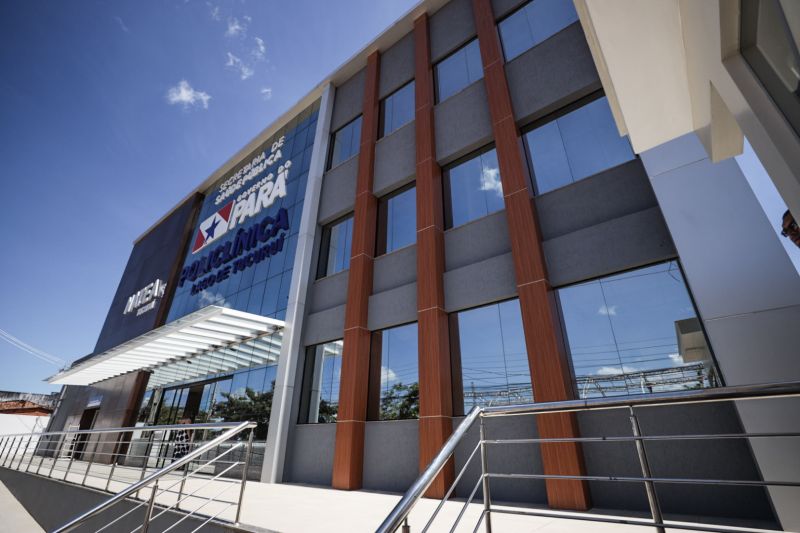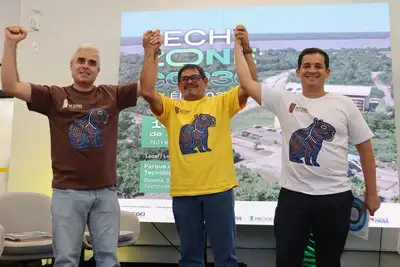Polyclinic Lago de Tucuruí strengthens the fight against obesity with specialized care
Service offered by the SUS guides, encourages accessible changes, strengthens prevention, and ensures a better quality of life for patients
Obesity, recognized worldwide as a chronic and multifactorial disease, remains one of the biggest challenges in public health. At the Polyclinic Lago de Tucuruí, in southeastern Pará, this confrontation advances with the support of specialized nutritional care, which offers individualized guidance, answers questions, and encourages healthier choices by patients.
According to nutritionist Alynny Rayla, who works at the unit, obesity is far from being just an aesthetic issue. “It is a chronic disease that involves biological, metabolic, and behavioral factors capable of compromising the functioning of the body. It can trigger inflammation, hormonal changes, and favor diseases such as type 2 diabetes, hypertension, and dyslipidemias,” she informs.

This scenario, the specialist reinforces, is intensified by increasingly common habits in society. The high consumption of ultra-processed foods, lack of physical activity, and long working hours create an environment conducive to weight gain and metabolic imbalance. “The accelerated routine, stress, inadequate sleep, and emotional issues directly interfere with eating behavior,” highlights Alynny Rayla.
The impacts of obesity, according to the specialist, require attention. “The accumulation of fat, especially in the abdominal region, increases the risk of cardiovascular diseases, type 2 diabetes, and hypertension. In addition, it overloads the joints, harms sleep, and even affects emotional health. It is a set of consequences that needs to be addressed responsibly,” the specialist reiterates.
Prevention - In this context, the prevention actions adopted at the Polyclinic, a unit of the Government of Pará managed by the Institute of Social and Environmental Health of the Amazon (ISSAA), in partnership with the State Department of Public Health (Sespa), gain even more relevance. To curb the advance of the disease, Alynny Rayla emphasizes that simple, consistent changes that can be incorporated into daily life can yield significant results.
“Prioritizing natural foods, including lean proteins, maintaining good hydration, and reducing the consumption of ultra-processed foods already promotes important changes in the body,” she assures, adding that creating regular meal times and practicing some physical activity, even if light, strengthens this process. “The important thing is to understand that small daily choices, when maintained consistently, have a real power to transform health,” the nutritionist reiterates.
At the Polyclinic Lago de Tucuruí, the nutritional monitoring offered by the professional is personalized and focused on the needs of each patient. During consultations, Alynny Rayla conducts complete assessments, guides on food choices, and develops accessible and realistic meal plans. “Our goal is to promote nutritional re-education and help the patient build a routine that they can maintain. We work in an integrated manner with other professionals in the unit, offering comprehensive and continuous care,” she concludes.
To access the services of the Polyclinic, it is necessary for the user to go through the regulation system, after initial care and evaluation in primary health care, such as health posts and Basic Health Units (UBSs). This ensures an equitable distribution of services, prioritizing those who need it most.
Service: The Polyclinic Lago de Tucuruí is a public unit located at Avenida Raimundo Veridiano Cardoso, nº 1008, in the Santa Mônica neighborhood, in Tucuruí. The service is provided from Monday to Friday, from 7 am to 7 pm, completely free of charge, through the Unified Health System (SUS).
Text: Ascom/Poli Lago de Tucuruí









